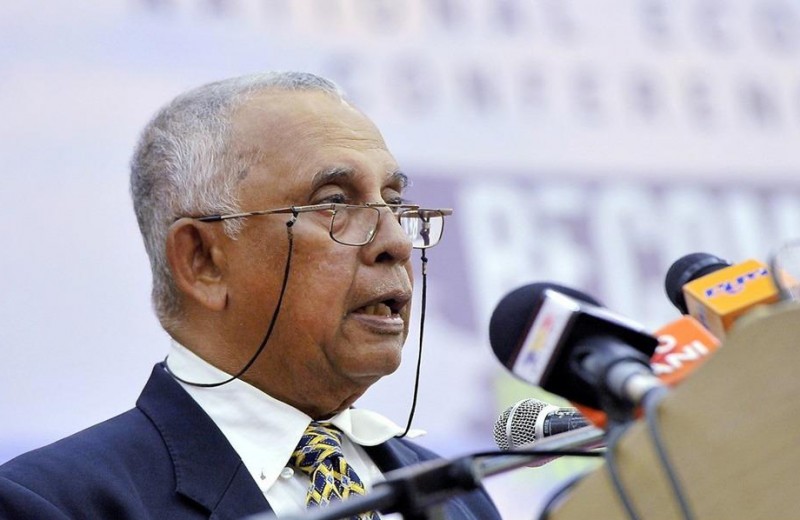
Former Treasury Secretary-General Tan Sri Mohd Sheriff Mohd Kassim (picture) has hailed a planned move by the government to reintroduce the Goods and Services Tax (GST).
Mohd Sheriff proposed that the new GST be lowered at 3.0 or 4.0 per cent from the 6.0 per cent when it was abolished by the Pakatan Harapan (PH) government shortly after it came to power in May 2018.
“A GST at 3.0 or 4.0 per cent can give as much if not more revenue than the previous rate of 6.0 per cent by limiting the exemption list to the bare minimum. The more the exemptions, the more complicated the implementation especially for small and medium enterprises (SMEs) and micro-businesses,” he told Bernama today.
He said this in response to an announcement by Finance Minister Tengku Datuk Seri Zafrul Abdul Aziz on Wednesday that besides the reintroduction of GST, the government was also examining new appropriate taxes that would only be implemented when the economy had recovered from the impact of the COVID-19 pandemic.
Describing himself as a GST advocate, Mohd Sheriff, who is also the former managing director of Khazanah Nasional Bhd, the country’s sovereign wealth fund, pointed out that the previous GST was complicated because it was difficult for SMEs and micro-businesses to decipher the Standard International Trade Classification (SITC) code when they were applying for refunds of the GST paid on the inputs used in producing or processing the goods before the final sale in the value chain.
“It took a very long time to get the refunds. There were so many complaints. The business people blamed the Customs (Royal Malaysian Customs Department) and the Customs, in turn, blamed the companies for filling in the wrong information in the refund claim forms,” he said.
The value-added tax that was imposed effective April 1, 2015, was highly unpopular and the PH coalition in its manifesto for the 2018 general election promised to abolish it and which it did just two weeks after the PH government was formed.
Mohd Sheriff said what happened after GST was implemented in 2015 was that family-run businesses which could not afford to employ professional accounting firms or the business owners who were too old-fashioned and computer-illiterate to keep accounts, found the whole system too complicated.
“The politicians exploited their complaints to claim the GST was cruel and unjust when 128 countries around the world have GST,” he added.
The reintroduction of the GST was justified because government revenue had to grow strongly to enable it to provide better quality services to the public, especially in education, health and social welfare.
“Malaysia is like a welfare state with free and cheap public services. This is viable only with a strong revenue base. Thus the income tax system must also be strengthened by minimising the leakages and evasions, especially from the self-employed businesses and stall operators,” Mohd Sheriff said.
The information derived by Customs from the GST paperwork on refund claims could be shared with the Inland Revenue Board to catch those who cheated on their incomes.
“Nothing comes free. If the revenue is weak, the government must borrow more and more and as interest charges on the debts get larger and larger, there is less available to keep public services running smoothly and efficiently.
“The poor will be more badly affected than the rest of the population in implementing the GST. The rate should start low and can be progressively increased over time,” he said.
Source: https://themalaysianreserve.com/2020/11/30/ex-treasury-sec-gen-hails-gst-reintroduction-move/

